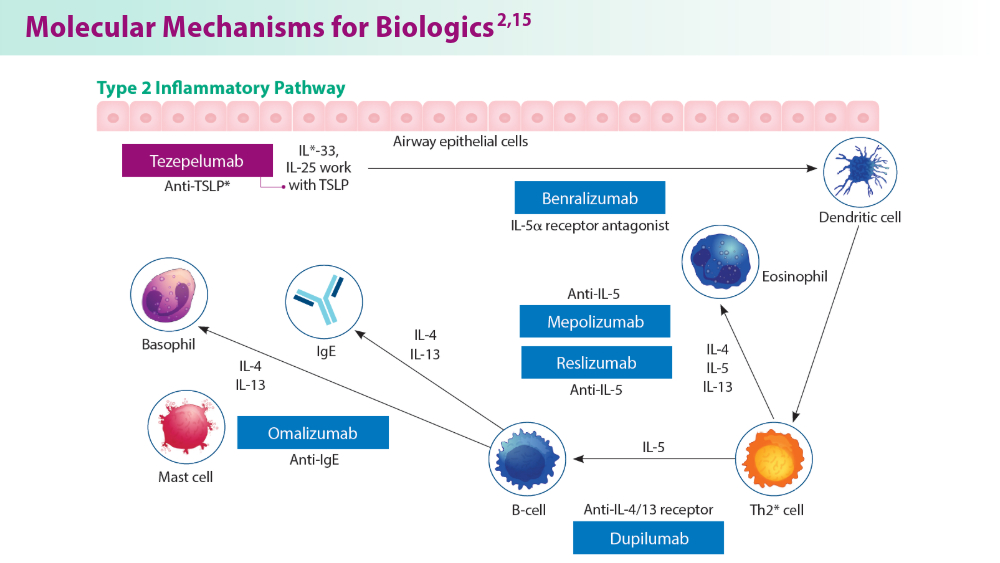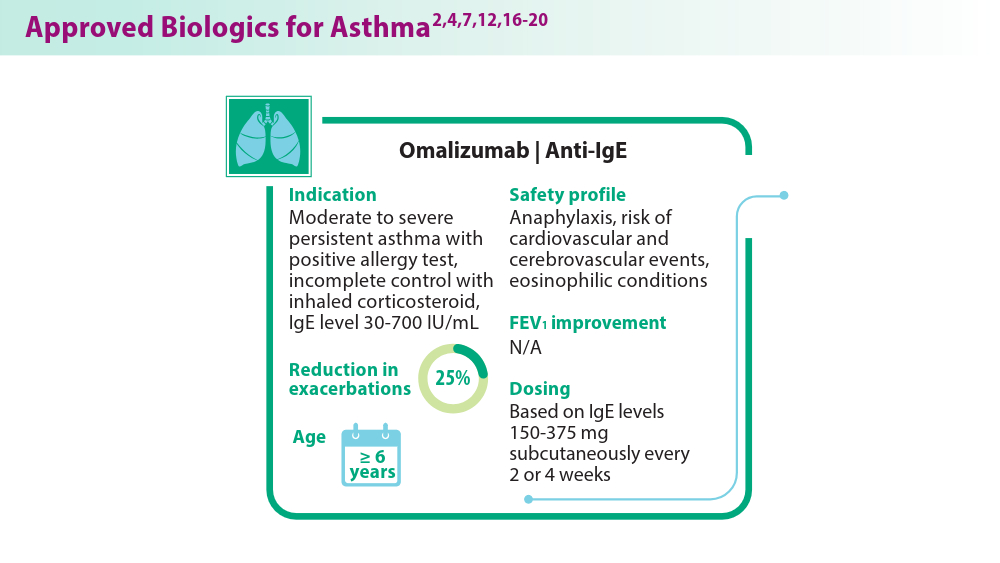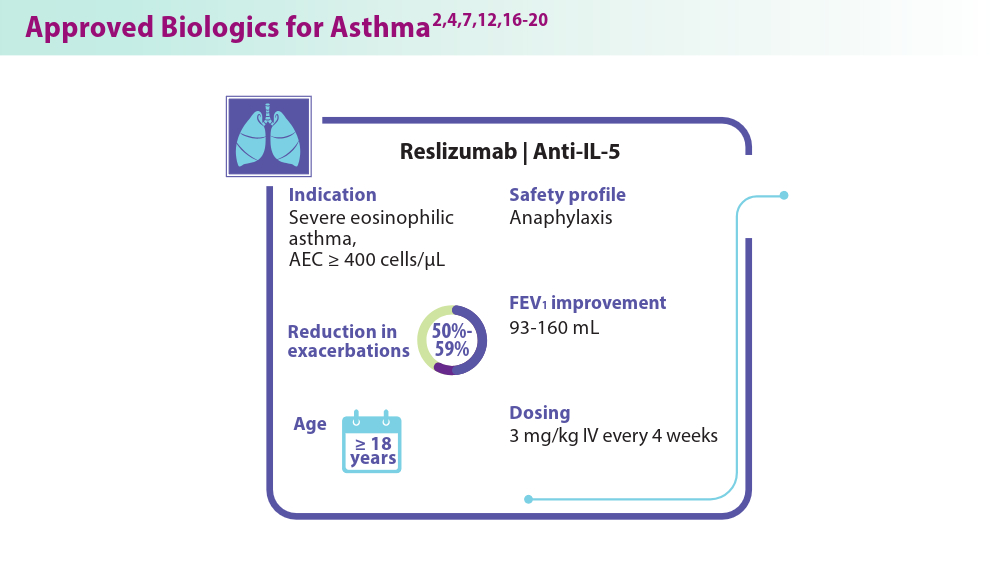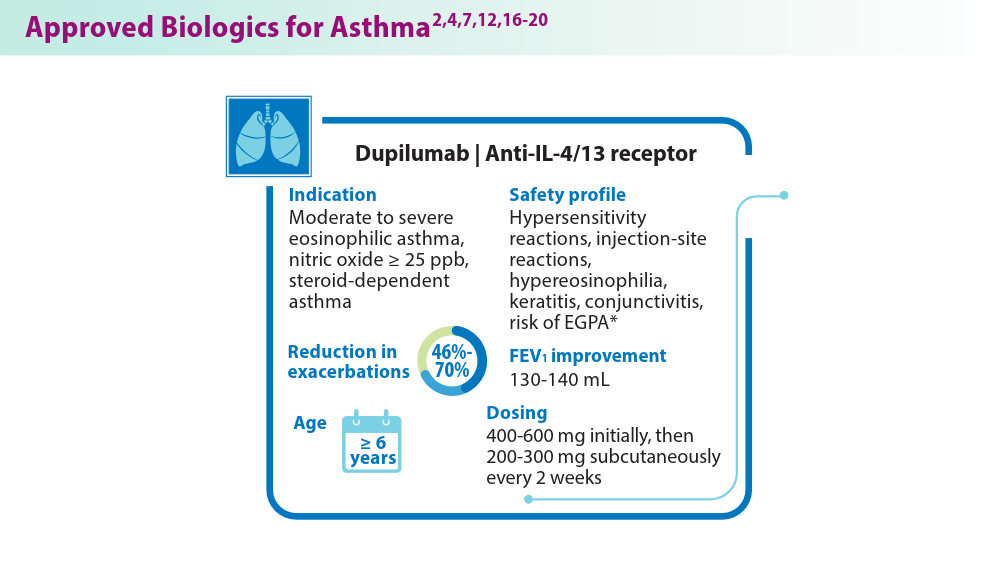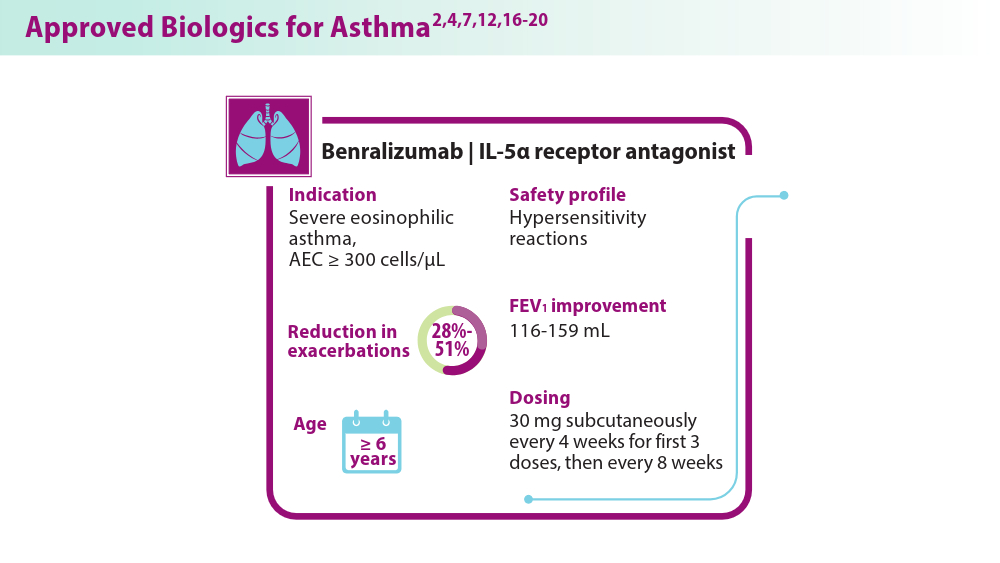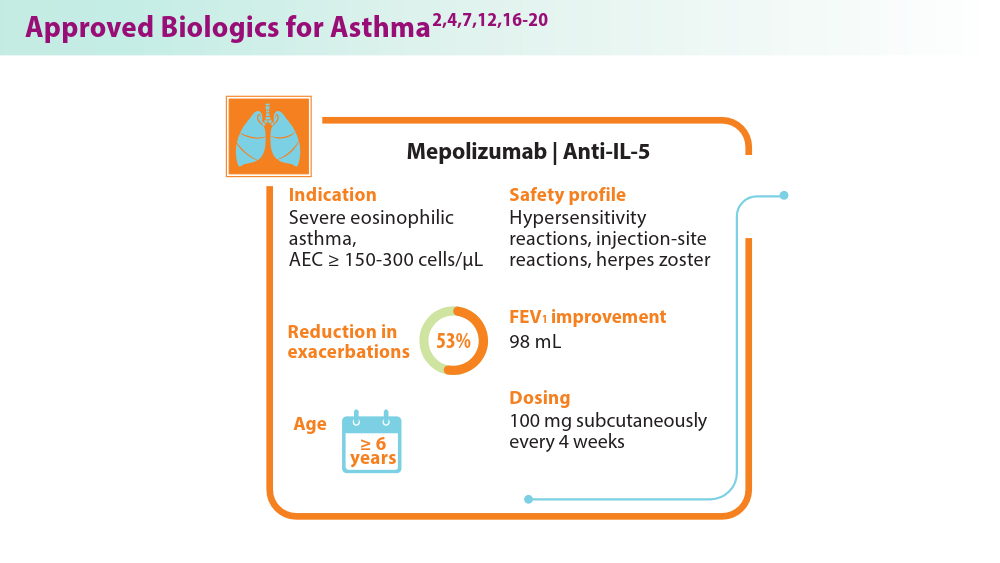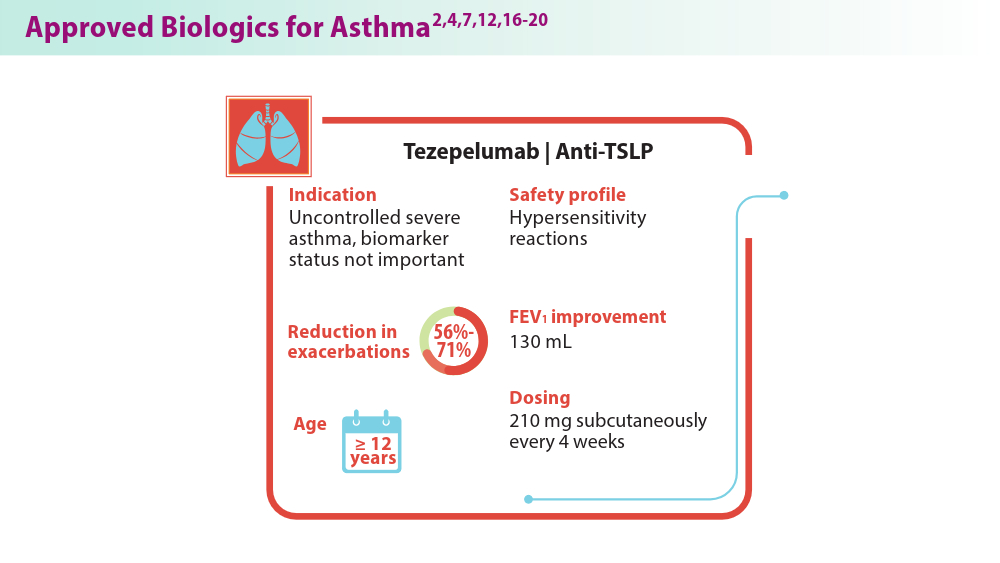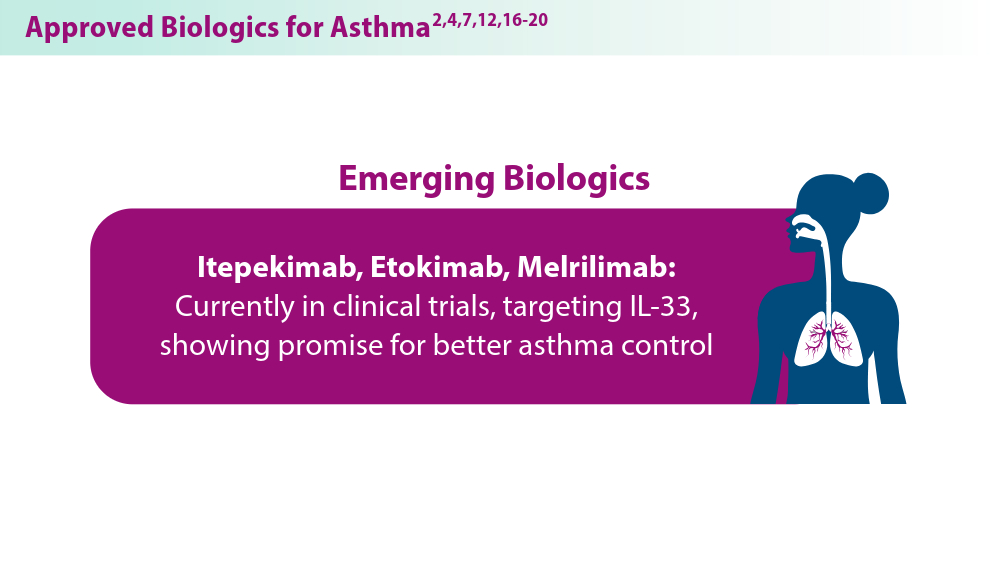Biologics in Asthma: Changing the Severe Asthma Paradigm
Shyam Subramanian, MD, FCCP
Chief, Division of Pulmonary Critical Care
Sutter Health
Tracy, CA
Dr. Subramanian has disclosed the following relevant financial relationships: Serve(d) as a speaker or a member of a speakers bureau for: Sanofi; GSK; AZ

The introduction of biologic therapies has revolutionized the treatment paradigm for severe asthma, particularly for type 2 mediated disease, which accounts for 70%-80% of all cases.1-3 Biologics have shown significant reductions in asthma exacerbations, decreased reliance on oral steroids, reduced daily rescue inhaler use, improved lung function, and enhanced overall quality of life for patients who remained poorly controlled on conventional treatments.2,4,5 Tezepelumab and dupilumab reduce exacerbations by up to 71% and 70%, respectively.4,6
Biologics also show enduring efficacy. Of the patients who continued dupilumab for 3 years or benralizumab for 5 years, 89% and 87% experienced zero exacerbations, respectively.7,8 Biologics have reduced the need for inhaled corticosteroid maintenance therapy, with up to 91% of patients having zero exacerbations after stopping inhaled corticosteroids while on a biologic.9 This is paving the way for asthma remission. In fact, a recent study found that up to 29% of patients met criteria for remission while on biologic therapy.10,11
Selecting the right biologic is crucial and involves appropriately phenotyping the patient based on their history and using biomarkers such as absolute blood eosinophil count (AEC), immunoglobulin E (IgE), fractional exhaled nitric oxide (FeNO) levels, and allergy panels.4 New biologics are also being developed to expand the range of biologic treatments available.12
Biologics represent a breakthrough for severe asthma. Despite their promise, only 25% of eligible patients receive biologics, highlighting the need for increased clinician education.13 Moreover, disparities in access to these agents remains a concern due to the elevated cost of treatment.14
1

